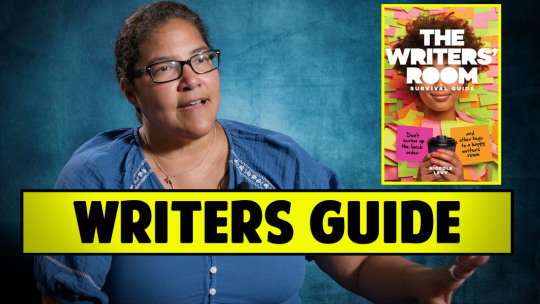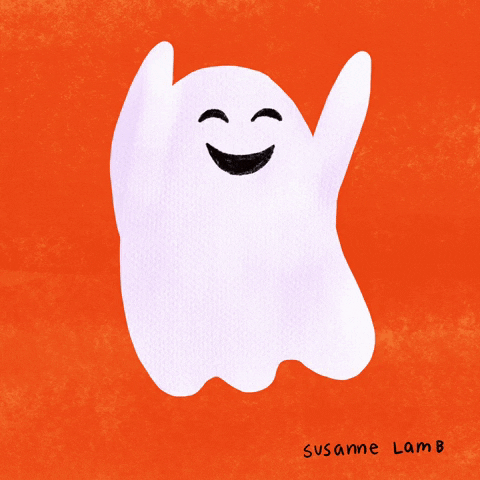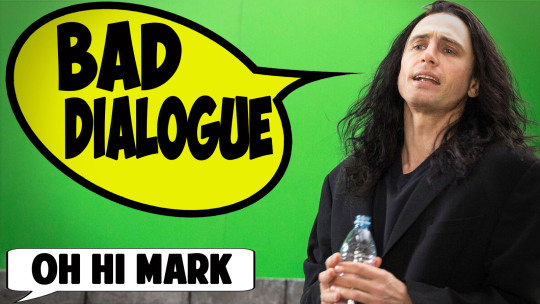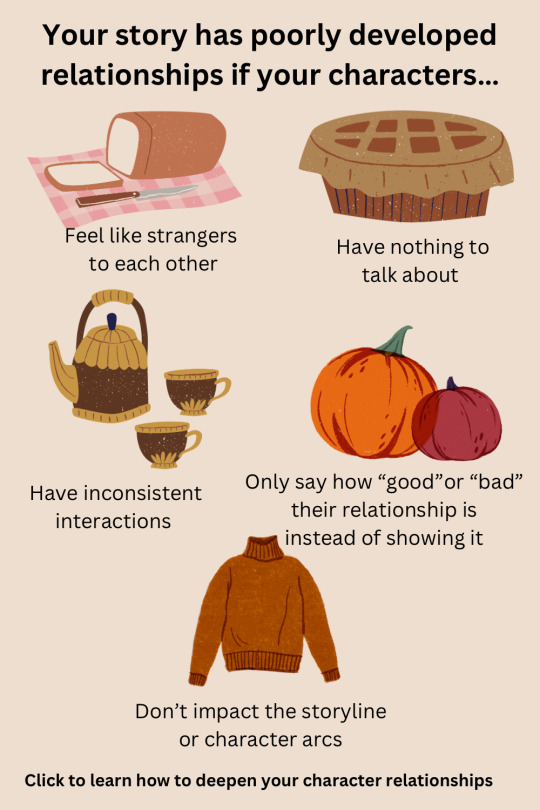#screenwriting advice
Explore tagged Tumblr posts
Text

The Writer's Room Survival Guide - Niceole Levy [FULL INTERVIEW]
#writing program#writers#scriptwriting#tv writers room#tv writing#television#screenplay#writers on tumblr#tumblr writers#tumblr writing community#write#screenwriters on tumblr#screenwriting advice#entertainment industry#hollywood#film jobs
6 notes
·
View notes
Video
youtube
5 of the BEST Pieces of Screenwriting Advice!
#youtube#5 of the BEST Pieces of Screenwriting Advice!#Screenwriting Advice#Create Stories#Very Good#Very Happy#Sharing The Happinesses
0 notes
Text
#short film writing#screenwriting for beginners#writing for beginners#writing tips#screenwriting advice#screenplay format#author#fiction#readers#audience#script#writing movies#indie filmmakers#filmmaking advice#playwriting#scriptwriter#poet
1 note
·
View note
Text
Your writing deserves love, kudos, recognition, and it is totally VALID to want those things, but a lack of it does not diminish nor determine your worth as a writer.
I know it's frustrating, but your stories are worth telling regardless. (+ sometimes a story pops off months after it was first published).
#writeblr#writers on tumblr#writing#writing advice#writing tips#screenwriting#writing encouragement#writing motivation#writing positivity#writer problems
1K notes
·
View notes
Text
How do we write characters authentically?
Hello, my dear writer! I assume we've all wondered at the beginning of our writing journey, "How do I find my own writing style? How do I stand out, and how do I make my characters sound authentic?" This post is dedicated precisely to the latter question. How do we write characters authentically?
Observe Different Personalities: Observe people of different age groups, from various cultural backgrounds, and with diverse life experiences. Pay attention to their language, gestures, and behaviors to develop a broad understanding of human diversity.
Take Time for Character Development: Invest time in developing your characters, including their background, motivations, goals, strengths, and weaknesses. The better you know your characters, the more authentically you can portray them.
Utilize Realistic Settings: Place your characters in realistic environments and situations that are recognizable to your readers. Describe the details of their surroundings, such as landscapes, buildings, clothing, and everyday items, to create a vibrant backdrop for your story.
Be Open to Change and Development: Allow your characters room for growth and change. People evolve over time based on their experiences and decisions. Permit your characters to learn from their mistakes, gain new insights, and undergo development.
Everyday SituationsAn additional tip is to place your character in various small situations, even if they are a fantasy figure. For instance, have your character order coffee. What happens if they encounter a ghost? What are their feelings about Christmas? Accompany them while shopping. How do they react when meeting their greatest hero? Describe everyday scenarios that aren't part of your official story but are meant for you to better understand your character.

#writing#writeblr#writers on tumblr#writer stuff#creative writing#writers#writing advice#writblr#writers block#writing community#writing tips#words#screenwriting#playwriting#writingadvice#amwriting#scriptwriting#script#bookish#book blog#booklr#bookworm#books and reading
2K notes
·
View notes
Text
Well, well, well if it isn't that placeholder plot point I put in the outline while I was sleep deprived. I knew we'd meet again one day
#writeblr#writblr#writing#writer problems#writer community#writers on tumblr#writers and poets#writerscommunity#creative writing#writing humor#writing memes#writing problems#writing process#writer#writers community#writing community#writing advice#outlines#outlining#screenplay#script#screenwriting#scriptwriting
202 notes
·
View notes
Text
The secret to being a writer is that you have to write. It’s not enough to think about writing or to study literature or plan a future life as an author. You really have to lock yourself away, alone, and get to work.
— Augusten Burroughs
#scriptwriting#screenwriting#amwriting#write#script#writingquotes#writingadvice#writinginspiration#writing quotes#writing advice#writing inspiration
165 notes
·
View notes
Text
Hey, Writers…
If you’re a writer and have questions about the publishing industry or the business of writing, I can offer some info and/or perspective from my experience.
And if you want to know what qualifies me to do such a thing, I’ve written five books for two publishers (the first of which was an actual bestseller) and ghostwritten two other books.
And with my business partner, I currently have a couple of script development deals with actress/producer Jaime Pressly’s recently launched production company Liston James.
Before all that, though, I was just shit-posting here on Tumblr about raising my twins sons.
So, reach out, if you want. Send me a question and I’ll post the answer.
95 notes
·
View notes
Text
How to Write on Final Draft (without it feeling so daunting)
It's incredibly difficult to open up a Final Draft document without feeling like you're literally writing your final draft, so here's a few features you can use your advantage!
1. Turn on dark mode
Dark mode makes it look like less of a script and more of an outline. Edit and rewrite in light mode, you will feel the difference.
2. Use speed view
Speed view gets rid of pages and page numbers and therefore you are only looking at the words you type.
3. Use focus mode
Focus mode removes the scenes, page numbers, and outlines you have at the top on the program while writing. Another way to forget about focusing on progress.
4. Make a messy beat board
Throw all your ideas onto the beat board, it should help make the document feel a bit more lived-in and less pristine.
Bonus:
5. Set a template with your formatting and use that to start every script you write
While a script format is very ridged, there are things you can do to personalize it. When you find those things, make them in a Final Draft doc (without actual writing) and save as your own template so you don't have to change all the elements every time.
#ronni august#ronni's writing tips#final draft#writing#writing tips#screenwriter#screenwriting#writing inspiration#writing ideas#writing inspo#writing advice#writing help#writing resources#how to write#writing tools#fiction writing#screenplay#writing motivation#writers of tumblr#♤ronniaugustwriting♤#196#r/196#r196
646 notes
·
View notes
Note
Why does screenwriting have such a weird format? I know it's standard for scripts of all kinds, but it's also alien? It almost looks like it's designed for someone to write quickly??
Why are screenplays the way they are?
Screenplays are interesting pieces of writing because while they can read very beautifully, and quality is apparent in some scripts more than others, it is a medium that is extremely purposeful. The script is not the final destination of the idea, and that is what you have to remember. The script is, more than anything, a map. It gives the cast, crew, and producers the necessary information to get a sense of the story so that it can be adapted effectively. Therefore, the quality of a script is judged by a completely different rubrick:
Adaptability: Scripts are naturally going to go through many changes to serve the filmmaking process. Filmmaking is a fundamentally collaborative process so other members of the group must be able to effectively interpret the script well enough to make strategic improvements. Scripts are definitely works of art in their own right, but the design must account for adaptation into a completely different medium and you will not always be the person making executive decisions on how that is to be done.
Clarity: Creative liberty is acceptable in a lot of forms of writing, and style is definitely apparent in a screenwriter's work, but that is primarily to be found in how they practically form the elements of the story, rather than how it is delivered in words. The clearer your meaning and intent in a script, the easier it will be for the other people you're collaborating with to interpret and translate into the next medium. Even if your work is meant to be experimental, abstract, or avant garde, the script is the place where you make sure everyone that is inside of the production understands the point, so that they can help you make sure everyone outside of it is confused in the desired way. Your talent and style can be showcased in the way you demonstrate the particular brand of humor or suspense or drama in the descriptions, dialogue, and dialogue cues.
Efficiency: Format is extremely strict in the industry because it is a collaborative medium that often brings together hundreds of crew members who are all from different backgrounds/experience. The one thing that must remain consistent and reliable is the legibility of the script. The gaffer and the producer alike must be able to pick up the script and find what they need to learn in order to fulfill their role. The format of the script denotes specific crew member's cues in specific places so they know how to find what's expected of them quickly and efficiently. While on larger productions, there's often many directorial positions who are coordinating and communicating with the crew members who handle more detail oriented jobs, that isn't always the case.
My advice, if you're looking to gain experience in writing scripts that are actually meant to be adapted is to practice self-discipline, pragmatism, and distance. Your script won't always belong to you. There isn't the autonomy in screenwriting that you have in prose. Learn the rules of screenwriting, then learn how to enhance them in your own way.
Best of luck,
x Kate
–
Masterlist
If you enjoy my blog and wish for it to continue being updated frequently and for me to continue putting my energy toward answering your questions, please consider Buying Me A Coffee, or pledging your support on Patreon.
207 notes
·
View notes
Text

27 Dialogue Mistakes
#writing#dialogue#movies#creative writing#writblr#tumblr writers#writing tips#writing 101#cinema#screenwriting#scriptwriting#writing advice#writing community#writes#am writing#best movies#writers on tumblr#screenwriting advice#scriptwriters#how to write#writing mistakes#authors#authors on tumblr#tumblr writes#fiction#books#books and reading
2 notes
·
View notes
Note
i'd love to become a official, published writer like you! how did you do it, and what do you think the best and worst things about doing it full-time is?
For me, and for most writers I know, it was a long road to doing it professionally full-time. The best advice I can give you is to treat it like a second job, regardless if you are getting paid or not. Progress is made by creating forward momentum — and quite frankly, most people are too wrapped up in their own world to think about yours until you make them.
I performed on weekends at comedy clubs with sketches I worked on the week before. I made shorts with my friends I uploaded to YouTube. I wrote in earnest, nonstop, for about seven years before I was hired for my first staff writing gig. Much of it was for little money. Most of it went nowhere — but each little victory snowballed until I had something that resembled a resume.
You will hear a lot of ‘no’s, have a lot of doors shut in your face. But kindness, enthusiasm, persistence and a dedication to improving your craft and learning from others will help you hone your own voice. It only takes one ‘yes’ to crack the door open enough to let you in.
The best part is that I enjoy going to work every day. It is a genuine thrill to tell stories for a living. It is the primary thing I’ve cared about for most of my life.
The worst part is that there is never a point where you no longer need to prove yourself. Experience can make it easier, certainly — but there is always the equation of your current audience versus tomorrow’s. Wondering whether the story you’re passionately working on will break through to find readers or viewers, and what it means for your career if it doesn’t.
Ultimately, most artists are like zen sharks. You just keep swimming. If you find success, what a joy. If you don’t, be grateful for the experience.
#writing#screenwriting#advice#creative writing#star trek prodigy#trollhunters#animation#star trek#star trek voyager
52 notes
·
View notes
Text
#screenwriting tips#screenwriting course#screenwriting online class#screenwriter#screenwriting advice#screenwriting blog#screenwriters strike
0 notes
Text
”My writing is insignificant—” WRONG. Your stories will never see the light of day if you don’t write them! So write them, because nobody else will!
#writeblr#writers on tumblr#writing#writing advice#writing tips#screenwriting#writing encouragement#writing motivation#writing positivity#writer problems
220 notes
·
View notes
Text
"before you can attempt a first draft, you've gotta take your big character's flowchart and divide it into scenes. Not key moments connected by vibes, but actual scenes" -LocalScriptMan in his video about dialogues
I hope you writers feel called out because I did. The vibes are great. We love vibes. But put them around your story rather than at its heart ! Hide the ineluctable story structure with vibes ! (I like LocalScriptMan's advice but he's a mainly plot-driven writer, like most screenwriters, so if you're a silly little character-driven writer like me maybe don't take everything he says about characters and plot at heart. Either way never take writing advice at heart. Think about it and see if you like it. We writers like to make up rules no ones strictly follows because it's art and art cannot be bend by rules, only explanations).

#on writing#writing advice#writing memes#writing#tumblr writers#writerscommunity#screenwriting#writing tips#writer things#writer problems#writer stuff#writers
115 notes
·
View notes
Text
Character Development Tips!

To learn how to avoid the above and create 3-dimensional characters with interesting backstories that inform their interactions with other characters, click here to get The Character Backstory Workbook!
#writblr#screenwriting#writing#creative writing#book writing#nanowrimo#screenplay#novel writing#writers on tumblr#romance writing#on writing#writing template#writerscommunity#writers and poets#writing prompt#writing advice#writing tips#writing inspiration#writing community#writing tools#character bio#original character#character design#dnd character#character development#character building#character design sheet#character profile#character moodboard#character backstory
67 notes
·
View notes